|
I'm still roaming the Wiregrass looking for the abandoned, derelict, forgotten and just plain interesting. These Henry County derelict gas pumps have survived the gas station itself. Other than the pumps, only a skeletal roadside remains. I didn't have long to capture these images, as a bad storm was bearing down on me. The lightning barrage to my north was too close for comfort considering all the tall metal surrounding me, so I took a few shots and got back in the truck. I've added this location my large and growing list of Wiregrass potential photography locations. I will revisit this place, as I think it has potential for other shots under different lighting and conditions.
0 Comments
Bryan Kirschner, the proprietor of "Grizzly Customs," has reached out to me multiple times over the past three years, requesting my photography services to capture his unique custom creations. Originating from California, Bryan infuses the Wiregrass area with a distinctive West Coast flair through his extraordinary custom bikes, which can be described as true works of art on two wheels. Naturally, I was thrilled when he recently contacted me again. However, this time around, things were different. Grizzly Customs, Bryan's business, is undergoing significant changes. He has made the decision to close down his current establishment and shift away from the realm of basic motorcycle repairs. Instead, he will be dedicating his efforts solely to crafting the art of custom motorcycles. According to Bryan, this particular aspect of the business is where his true inspiration lies, and it is where he intends to concentrate his focus. When he asked me to document the final two motorcycles to be created at the Andrews Avenue location in Ozark, I gladly accepted the opportunity. Without further ado, I present to you a collection of images from my recent session at Grizzly Customs. Sit back, relax, and enjoy! Here are some images of previous shoots for Grizzly Customs.
Last week was hectic at work, but I did manage to get some writing done. I dropped about 1000 words on a manuscript that has been sitting around since at least the late 1990s. I set it aside years ago to concentrate on "The Chronicles of Fu Xi," but now I've picked it back up in an effort to complete it. It's funny looking back at your old draft manuscript. The process makes most writers cringe, myself included. However, that's not the case with this manuscript. It's been at least five, maybe even ten, years since I've read chapters from this unfinished work. I don't cringe when I read them (well, most of them). I think it's some of my best work, but it's unfinished. My wife doesn't comment on my writing much, but she has stated in the past that she prefers this manuscript to my work on "Chronicles of Fu Xi." I really need to figure out a way to complete it. But why? If it's so good (at least in my head), why can't I bring myself to finish it? In this blog, I'm going to talk myself through the problems I'm having with this manuscript. Maybe writing about them might help me break this decades-long logjam and get the project moving. You're welcome to listen in. I spent most of Sunday morning inventorying completed chapters and story outlines. I have perhaps 50-60 thousand words, lots of good scenes, a rough story idea, but no solid plot structure. That's what stopped me last time. How do I progress this story with solid characters and great personal interplay? Where do I take it? First, I don't know where it's going. That's a hard pill to swallow as a professional writer, realizing I just started writing scenes but have no idea where to take it. As my writing style evolved, I eventually found that it's best to start with the ending. If I know what the climax will look like, I can build a story to get me there. Yet, I don't have a solid climax for this manuscript. I have a vague idea of where I want it to go, but not a solid scene in my head. This is the first problem to solve. Second, my MacGuffin is vague. A MacGuffin is the object that sets the plot into motion and gives the plot purpose. For example, in the Harry Potter books, it's the thing Harry and his friends are trying to find, like the Sorcerer's Stone. In "Raiders of the Lost Ark," it was the Ark. I have several MacGuffins to choose from in this manuscript, but I can't settle on just one. I think it's because just one doesn't satisfy everything I need it to do. That probably means I need to simplify the plot and maybe even axe some characters. The third problem I have is when the story is set. I started writing it in the late 1990s, and that's where I left it. It went from being a contemporary "urban" fantasy to a period piece. I didn't mean for that to happen. I'm going to keep it set in the '90s because I think it adds flavor, and one of the characters must come from the "Greatest Generation," and if I make it happen today, they would be too old or dead. A period piece demands more research to make sure I have my facts right so it feels like it's set in the 1990s. Computer tech plays a major role in the plot, so getting the state of the art for the mid-1990s is key. All of this adds time. The fourth problem is that I have too many characters and subplots. Actually, let me correct myself—I definitely have too many characters and subplots. For instance, I'm currently in the middle of writing a new prologue to solidify the MacGuffin, but it quickly spiraled out of control as the minor character in the prologue (who was supposed to be there only to set things up) started to take on too much of a life of his own. What was intended to be a 1000-word section has now ballooned to over 3000 words. There I go again, falling into the trap of forgetting that less is more. If I want this novel to be under 100K words, I need to streamline everything. It's time to make some painful choices. The next issue isn't really a problem per se, but it's a necessary and difficult aspect to tackle. This story is dark—brutal, even, at times. Profanity and violence must occur to stay true to the characters. People who have become familiar with my previous work probably won't like or understand it. Some may even recoil. I can't sugar-coat this plot. The characters are who they are. However, amidst the darkness, there is a strong streak of goodness and hope in this book. But for that light to shine brightest, it needs to be surrounded by darkness. All of these flaws act as poison pills for the manuscript. But it's not all bad news. Every story needs an overarching theme, each character needs a theme, and each chapter needs its own theme. I sort of have an overall theme for this book—the redemptive power of love and the timelessness of love. Yet, as I'm writing this, I've come to the realization that I actually stumbled upon my true theme by accident. I didn't even realize I had written it down inadvertently. I feel better after talking through all of this. Thanks for listening. Okay, it's time to get back to writing. If you enjoyed this blog post, check out my epic fantasy series! "Chronicles of Fu Xi: Three Book Set" signed by author.
$55.00
Get all three paperback novels signed by the author! Set in the long-forgotten period of ancient history known as "The Younger Dryas," THE CHRONICLES OF FU XI transforms recently re-discovered Black Sea legends, possibly the root of all Eurasian mythology, with ancient Chinese mythology to create an unprecedented epic fantasy series. Allow 1-2 weeks for delivery. Autographed Paperback Copy of "The Golden Princess
$15.00
Get your personalized signed copy of "The Golden Princess!" "Escape the City of Gold, or live forever in chains." Raised in splendid isolation. Betrothed to a man she despises. Destined to rule over the greatest city on earth. She is the Golden Princess. Sarah dreams of love and adventure beyond her gilded prison, but tonight her dreams come true in the most terrifying way imaginable. A bloody power struggle erupts for the throne, and dawn finds the princess on the run with a bounty on her head. Alone and hunted by guards, criminals and a ruthless slaver who will stop at nothing to burn his brand into her flesh, Sarah must summon courage she never knew she possessed. Hope, however, comes in the form of two lowly thieves. Driven by a secret, they race through Hur-ar’s underworld to find Sarah before her enemies do. Before the next sunset, Sarah’s fate, and that of empires, will be decided with gold, steel and blood. Allow 1-2 weeks for delivery. The last few weeks I have been unable to focus on any one project. Important obligations elsewhere have kept me away from the lens, the keyboard and the motorcycle. This is somewhat of a bummer, but necessary. Hopefully, I'll have a photo session coming up this week, and I look forward to it. Maybe another behind that. Work continues on two fiction novels: Chronicles of Fu Xi Book IV, and a stand-alone urban fantasy, tentatively titled Quest for the Purple Queen. It's a project I've had in the works since 2008, will be submitted to traditional publishers once completed. I've put it on the front burner because, well, its time. In the coming weeks I plan to showcase a sample of the new novel here on my blog. More to follow. On the photography front, I was recently invited to take photos of a private car & motorcycle show for a friend of mine. I had a great time, and I wanted to share a few of the images with you today.
To celebrate the opening of my "I Love Enterprise" Gallery, I'm conducting my first giveaway. You could win an 8x12 print of "Centennial Boll Weevil." Why did I create an "I Love Enterprise" gallery? Well, simply put, I adore my hometown and I find immense joy in capturing its essence through my photography. Living here has fostered a deep love for this place within me. In January of 2019, we were fortunate to witness a remarkable lunar eclipse, coinciding with the start of the Boll Weevil Monument's 100th anniversary. Seizing this unique opportunity, I decided to merge these two significant events into a single image, captured on the same unforgettable night, as a heartfelt homage to the centennial celebration of the Boll Weevil Monument. My intention was to commemorate this momentous occasion, paying tribute to the enduring spirit of Enterprise. For those who are unfamiliar with Enterprise, the statue holds a special significance as it is dedicated to the remarkable insect that played a pivotal role in transforming the region's agricultural landscape. At that time, the devastating impact of the boll weevil on the cotton harvests forced growers to seek alternative crops, leading them to embrace the cultivation of peanuts. This unexpected shift turned out to be a stroke of brilliance, as peanuts proved to be a more lucrative and sustainable choice, ultimately becoming the backbone of the area's thriving agricultural economy. It's worth noting that the Boll Weevil statue holds a truly unique distinction, as it stands as the only monument in the world dedicated to an insect. In order to win, you must enter your valid email below. While I'm sure this contest is of special interest to those from Enterprise and the Wiregrass, anyone who lives in the continental United States may enter. No purchase necessary. The contest closes 9 June, and I will contact the winner by 12 June 2023. If this giveaway goes well, there will be more to follow. In the meantime, please checkout my "I Love Enterprise" Gallery for other images of my hometown! Rules: You must live in the continental United States to win.
I recently had the opportunity to visit Chihuly Garden and Glass in Seattle, and it was truly a remarkable experience. Located at the base of the Space Needle, this permanent exhibit showcases the extraordinary work of Dale Chihuly, a world-renowned master glassblower and artist. The garden encompasses both indoor and outdoor display spaces, featuring stunning architecture and even a delightful little bar. Prior to my visit, I must admit that I was unfamiliar with Dale Chihuly and his artistic brilliance. However, upon entering the garden, I was immediately captivated by his mesmerizing glass art. It possesses a magical and ethereal quality that truly left me in awe. The vibrant colors, intricate shapes, and masterful compositions go beyond mere visual appeal. They evoke a sense of wonder and transport you to another world. To my pleasant surprise, photography without flash was permitted in the Chihuly Garden, allowing me to capture the beauty of his creations. I could have easily spent an entire day photographing his breathtaking artwork. Needless to say, but now I am a fan. In addition to the Seattle exhibit, Dale Chihuly has curated several other temporary and permanent exhibits across the United States, as well as in Japan. If you haven't had the chance to witness his artistry firsthand, I wholeheartedly recommend taking the time to visit one of his exhibits. For more information, you can visit his website or find him on Facebook. If you enjoyed this blog post, please explore my fiction and photography books by clicking below! Autographed paperback copy of "Abandoned Wiregrass"
$24.99
Get "Abandoned Wiregrass: The Deepest South’s Lost and Forgotten Places" signed by the author! Welcome to the Wiregrass, a place where abandoned doesn't always mean vacant, and vacant doesn't always mean empty. Nestled between Florida's sugar-white beaches and the agriculturally rich Black Belt, there exists a land of endless peanut fields and high cotton. This is the deepest of the Deep South, Dixie's last stand before accents and culture take on a decidedly Northern flavor along the Gulf Coast and Florida Peninsula. Narrow asphalt ribbons wind through this region's pine forests, passing through small farming communities that are fighting for survival in the global economy. The lingering aftershocks of the 2008 economic crisis and 2018's Hurricane Michael still reverberate here. These pressures, along with an aging and declining population, have created a region where abandoned buildings are commonplace. These forgotten structures speak of dreams lost; from crumbling sharecropper shacks, to desolate main streets, to modern homes where the owners simply moved on. Take a journey with award-winning author and photographer Brian Braden as he chronicles the slow-motion apocalypse of abandoned homes and businesses of the Wiregrass and also discovers a place of hope and transition, where citizens fight to revitalize their hometowns and preserve a rich cultural heritage. Allow 1-2 weeks for delivery. "Chronicles of Fu Xi: Three Book Set" signed by author.
$55.00
Get all three paperback novels signed by the author! Set in the long-forgotten period of ancient history known as "The Younger Dryas," THE CHRONICLES OF FU XI transforms recently re-discovered Black Sea legends, possibly the root of all Eurasian mythology, with ancient Chinese mythology to create an unprecedented epic fantasy series. Allow 1-2 weeks for delivery. Autographed Paperback Copy of "The Golden Princess
$15.00
Get your personalized signed copy of "The Golden Princess!" "Escape the City of Gold, or live forever in chains." Raised in splendid isolation. Betrothed to a man she despises. Destined to rule over the greatest city on earth. She is the Golden Princess. Sarah dreams of love and adventure beyond her gilded prison, but tonight her dreams come true in the most terrifying way imaginable. A bloody power struggle erupts for the throne, and dawn finds the princess on the run with a bounty on her head. Alone and hunted by guards, criminals and a ruthless slaver who will stop at nothing to burn his brand into her flesh, Sarah must summon courage she never knew she possessed. Hope, however, comes in the form of two lowly thieves. Driven by a secret, they race through Hur-ar’s underworld to find Sarah before her enemies do. Before the next sunset, Sarah’s fate, and that of empires, will be decided with gold, steel and blood. Allow 1-2 weeks for delivery. Vacation is over, back to work. I'm back home from a week in Seattle. It was my first visit to that town, and it was an overall pleasant experience. My wife has a business trip, and my daughter and I tagged along. Of course, I brought my camera. A few impressions of Seattle: 1. Not as crime-ridden and overrun with homeless drug users as the media makes it out to be. I saw a few makeshift tents and the drug users were there, but mostly concentrated in a few spots. Overall, the streets were clean and safe with a strong police presence. Panhandlers weren't any worse than most American cities. In terms of homelessness, Seattle didn't compare to what I saw in California last year. 2. People were generally friendly. Maybe that was because everyone was high - everywhere you go smells like skunk-weed. 3. Everything is expensive. 4. Seattle is an international city. I heard so many different languages. 5. Great food. 6. Great art, and we only scratched the surface. 7. It's a photographer's paradise. I had so much to shoot, and so little time to do it. I could have stayed another week. Gotta go now, check back on my Facebook for more images over the next week. I'm taking a break from this week's blog. I'll be spending some time with my family, and a break from writing as well as taking some "recreational" photography. I'll be back next week.
Most of my work is fine art and landscape photography, but I do enjoy the opportunity to do portrait photography. Camryn's mom asked me to take her senior photos, and we had a blast that day. I love taking senior photos, and capturing that special moment in a young person's life as they start their journey into adulthood. What's really fun is parent participation during the photo session, as its a shared opportunity for the child and parent to work together on something special one last time. Moms and dads are often pleasantly surprised when I ask them to hold a reflector, shade or light and participate in the shoot. The parents understand the importance of the moment, and the kids will eventually look back and understand as well. If you would like a senior photo session, or any portrait needs, please contact me below. "What was that?" my oldest son said and pointed at something along the roadside. When you see something unexpectedly odd, it takes you a second to register it. That was the case for me a few weeks ago. 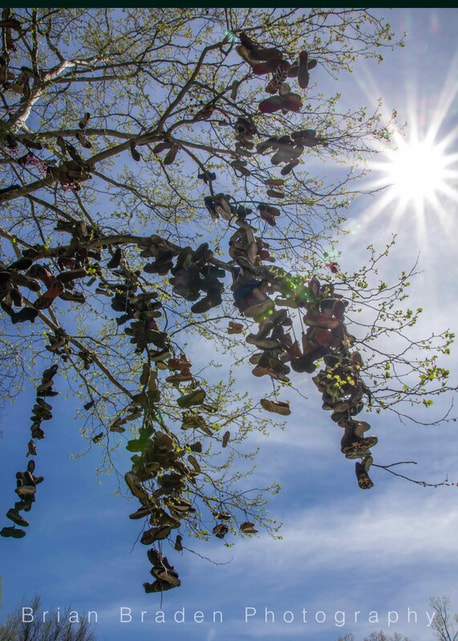 Travelling between Huntsville and Memphis on US 72 was a new experience for me. Although someone had warned me it was a dull road, I found it quite the opposite. The smooth pavement and light traffic made it an easy drive, and the charming Tennessee River farmland was a pleasant sight. I fell in love with the area instantly. As we approached the Mississippi border and passed by Cherokee, my oldest son in the passenger seat drew my attention to something unusual. At first, I thought it was a strange fruit hanging from a roadside tree, but as we whizzed by, I realized that these were shoes suspended from the branches. I longed to stop, but we were pressed for time. "We'll check it out on our way back," I promised, and we carried on towards Memphis. The following day, I kept my word. As we drove back towards Alabama in the mid-afternoon, I spotted the shoe tree and made a U-turn at the next crossover. I pulled over and grabbed my trusty Canon T-5, taking a few shots. The sun was high, and the air was fresh and cool after a major spring storm two nights before. The tree was beginning to bud with fresh shoots around the shoes. I managed to capture some shots despite the passing vehicles, and then we continued on with our journey. 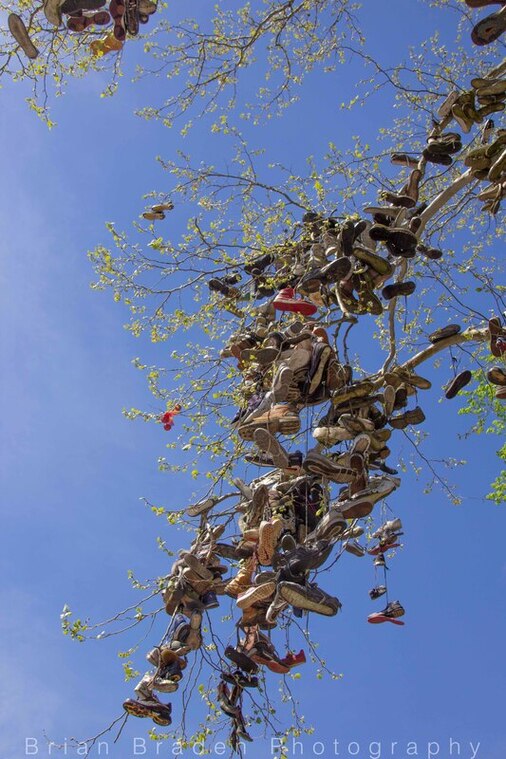 Before stumbling upon the Cherokee Shoe Tree, I had no idea it existed. However, after a quick Google search, I discovered that it has been around for quite some time, though the exact number of years remains unknown. The earliest article I could find dates back to 2009, from the Tuscaloosa News. The article includes this quote: "... tree comes an unspoken rule: Need a pair, take a pair. But if you can spare a pair, then do it." According to a 2018 article on OMGFacts, shoe trees may have originated during the Great Depression as a way for people to donate extra pairs of shoes to those in need. This theory makes sense on several levels. For instance, Cherokee is just one of at least a dozen shoe trees in the United States. Roadside America provides locations for many of them, and if you click on the link and examine the map, you'll notice that many are located along routes used by economic refugees during the Great Depression. These routes led from the Deep South and the Dust Bowl to places like California and Detroit, where jobs were available. Why do shoe trees still exist today? Is it due to nostalgia, novelty, tradition, or tourism? Some sources suggest that spiritualism may be the root cause. As for the Cherokee Shoe Tree, there is an eerie and sacred quality to it that I find hard to describe. Though this feeling was somewhat subdued by the bright midday light and clear blue sky, which favors reason and logic over mysticism. Under different lighting conditions, such as dim light or murky mist, other aspects of the human psyche may hold sway. These are the moments when both my camera and I yearn for. Yet, even under the brightest sunlight, the primitive magic of this place seeps through. I could feel it, even though my camera failed to capture it fully. Perhaps shoe trees tap into something deeply mystical and ancient that is rooted in our common humanity, reaching back to the dawn of our species. "Trees have been regarded as the first temple of the gods, and sacred groves as the first places of worship.; they are held in the utmost reverence" - Hughes and Chandran. The tree is a universal symbol of life and a life-giving force in nearly every culture and civilization on earth. In the Bible, trees are mentioned 525 times, second only to God and humans. Trees are present at the beginning of Genesis, with the Tree of Life and the Tree of Good and Evil. Christ referred to himself as a vine, and he died on a "tree" of sorts. Christians even have the tradition of the Christmas Tree, which has its roots in European paganism. Trees are also sacred to many other faiths. Tree planting as a sign of life is mentioned in the Koran, and Buddhism and Hinduism also revere trees in their unique ways. European pagans worshiped in tree groves and considered oaks and yews sacred. The phenomenon of shoe trees taps into this ancient tradition. The shoes thrown across the limbs and scattered on the ground resemble a sacrifice, a gift, and a ritual all in one. It represents an interaction between two species, one ancient and one ephemeral. These shoe trees seem more at home in ancient druidic groves than beside a modern highway. If a druid were present, what would they say with each tossed sneaker or pair of high heels thrown into the branches? "Great and Ancient One, these shoes are a gift to the future, for someone I will never know and who will never know me. Please hold them for me. Watch over and guard the shoes until needy hands pluck them from your branches, or until they fall from your limbs like rotting fruit. There, they will cover the ground among your roots, among the fallen leaves until the earth reclaims them like old bones. Remember us, Great and Ancient One, and whisper our names to the forest so that one day others might know we once walked here. "Remember us." Articles About Shoe Trees and Tree Stuff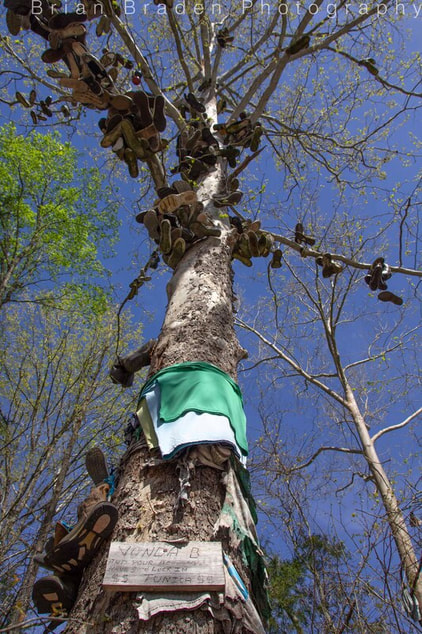 The Legend of the Shoe Tree Grows on America's Loneliest Highway. Shoe Trees in Michigan and the Rumors That Surround Them. Shoe Trees are Popping Up All Around The World. Witness the Shoe Tree of Middlegate. Shoe Tree. Alabama's Legendary Shoe Tree: Lost Soles of Just Old Sneakers Thrown Over A Limb? A Few Youtube Videos on Shoe Trees.
If you enjoyed this blog, please like the post and leave a comment or if you're feeling brave, share it on social media. This platform is my entire advertising budget and is how I share the word on my books. Also visit my Facebook, my author page and check out my photography book from America Through Time, "Abandoned Wiregrass: The Deepest South's Lost and Forgotten Places." All images and literature are protected under US Copyright laws and shall not be downloaded or reproduced without written permission by Brian Braden Photography.
|
Archives
July 2023
Categories
All
|
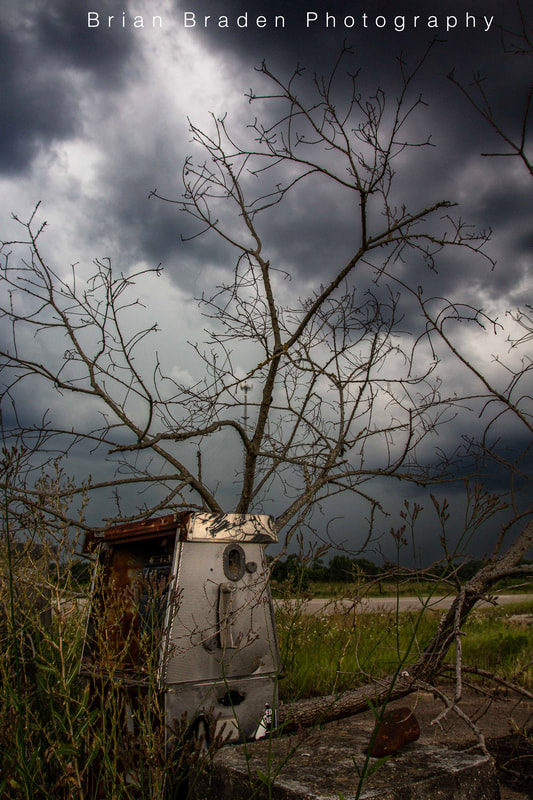
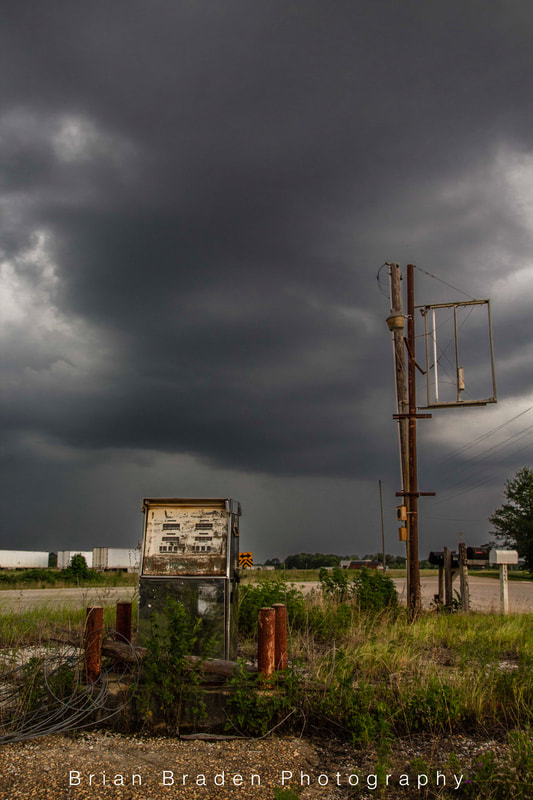




















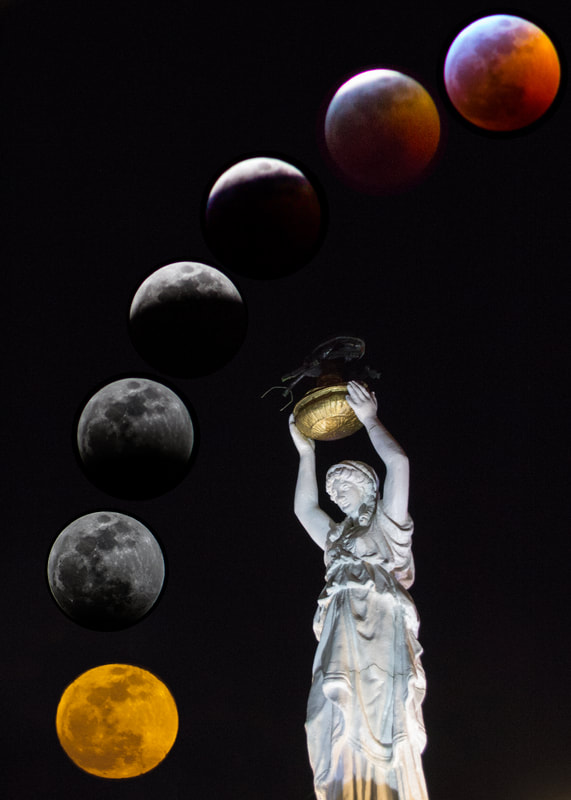

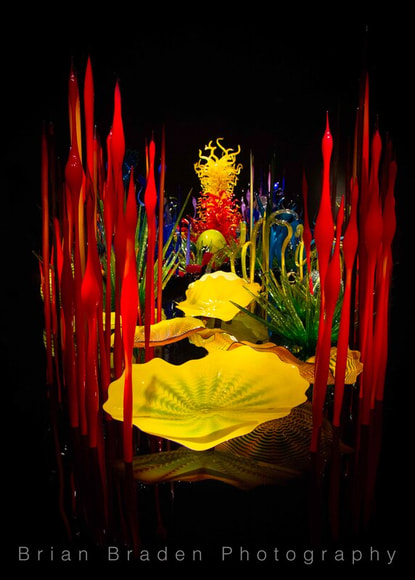

















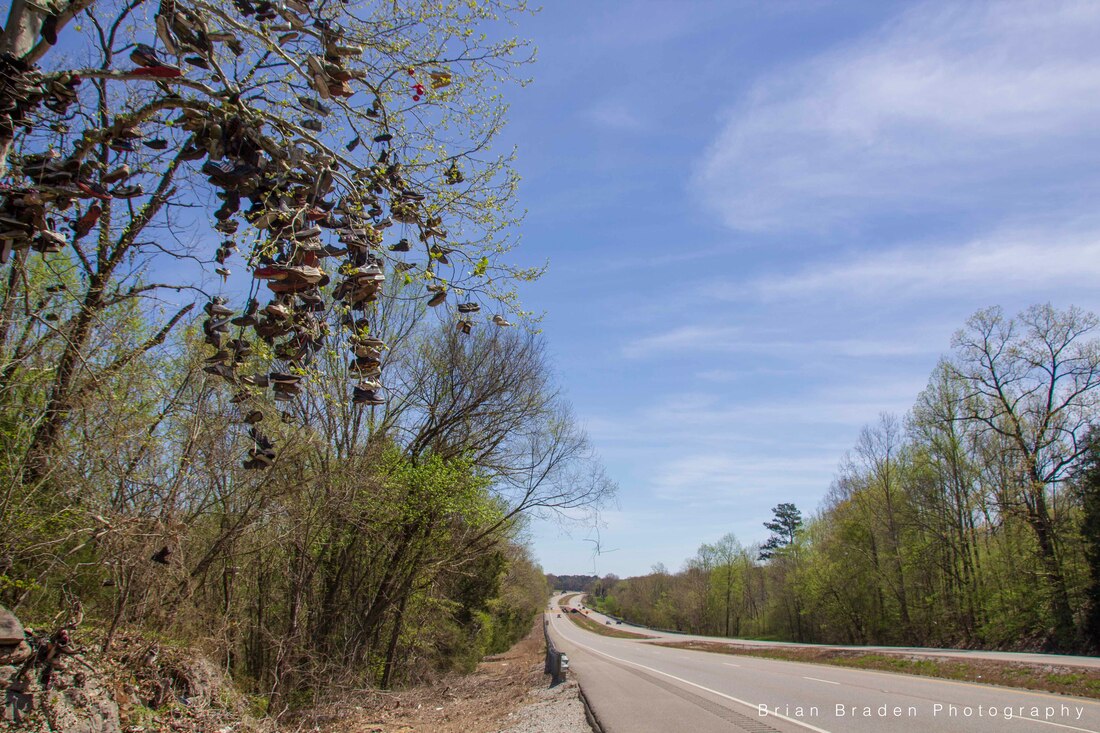
 RSS Feed
RSS Feed